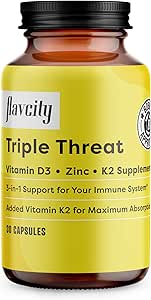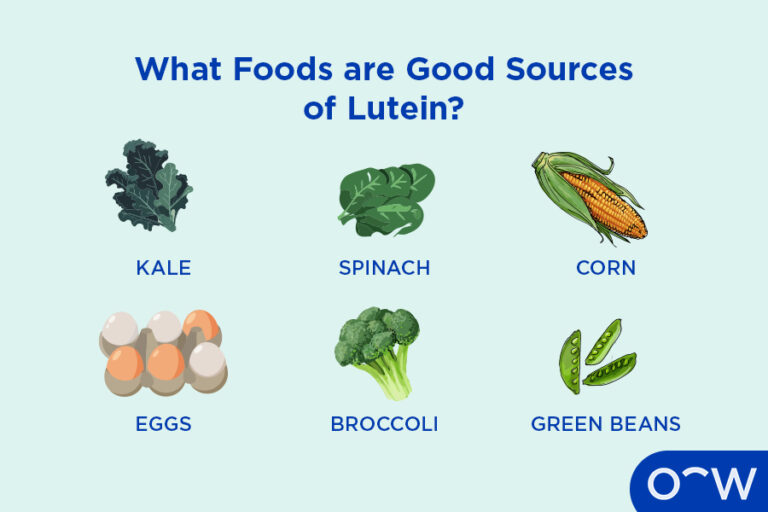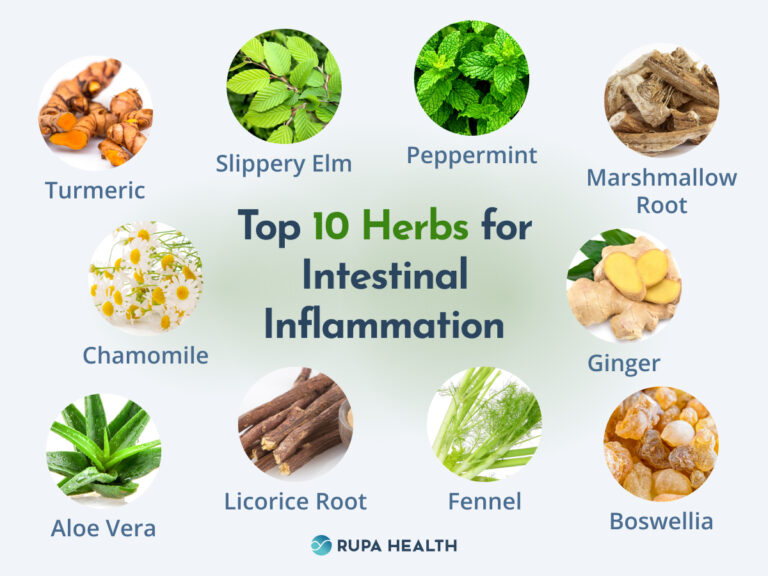The Emerald Elixir: An A-Z Journey Through the Benefits of Hazelnut Milk
In an age where dietary choices are as diverse as the palates they serve, a verdant revolution has been brewing in our kitchens and coffee shops. Once a niche offering, hazelnut milk has emerged from the shadow of its more established plant-based counterparts to claim its rightful place as a beloved staple. Far from being just a dairy alternative, this creamy, subtly nutty elixir holds a treasure trove of benefits, a testament to the humble hazelnut’s remarkable nutritional prowess.
Our journey begins not just with a sip, but with an exploration – an A-Z odyssey into the very heart of what makes hazelnut milk a powerhouse of wellness. For the discerning individual, the health-conscious connoisseur, or simply the curious seeker of optimal nutrition, this deep dive reveals why the emerald elixir is far more than just a passing trend. It’s a testament to nature’s ingenuity, bottled and ready to nourish.
>
The Genesis of a Green Giant: Hazelnut Milk’s Ascent
Before we delve into the alphabet of its advantages, let’s briefly acknowledge the trajectory of hazelnut milk. Originating from the nuts of the Corylus avellana tree, hazelnuts have been cherished for millennia, their rich, sweet flavor a delight in both sweet and savory dishes. The transformation of these nuts into a milky beverage is a relatively recent widespread phenomenon, propelled by increasing awareness of dairy intolerance, environmental concerns, and a collective yearning for wholesome, plant-based options.
What makes hazelnut milk particularly captivating is its unique flavor profile – a delicate balance of earthy nuttiness with a hint of natural sweetness, making it an incredibly versatile ingredient. But beyond its undeniable taste appeal lies a complex tapestry of nutritional benefits, each thread contributing to a holistic picture of well-being. Let’s unfurl this tapestry, letter by letter.
>
The A-Z of Hazelnut Milk Benefits: Unveiling Nature’s Wisdom
A – Antioxidants: The Body’s Silent Protectors
Hazelnut milk, especially when minimally processed or homemade, is a commendable source of antioxidants. Foremost among these is Vitamin E (alpha-tocopherol), a fat-soluble vitamin renowned for its potent ability to scavenge free radicals. These unstable molecules, byproducts of metabolism and environmental stressors, can cause oxidative damage to cells, contributing to aging and chronic diseases. Beyond Vitamin E, hazelnuts boast a rich array of polyphenols, including proanthocyanidins and flavanols, which further bolster the body’s defense mechanisms. These compounds work synergistically, providing a comprehensive shield against cellular degradation, supporting everything from cardiovascular health to cognitive function.
B – Bone Health: The Structural Integrity
While not always fortified to the same extent as some dairy or soy milks, many commercial hazelnut milk brands are enriched with essential bone-building nutrients like calcium and Vitamin D. Calcium is the primary mineral component of bones, providing strength and structure, while Vitamin D is crucial for its absorption and utilization. Furthermore, hazelnuts naturally contain magnesium and phosphorus, two other minerals vital for bone density and skeletal integrity. Magnesium, in particular, plays a role in activating Vitamin D, ensuring calcium is properly directed to the bones rather than accumulating in soft tissues.
C – Cardiovascular Support: Nurturing the Heart
The heart-healthy reputation of hazelnuts translates directly to their milky derivative. A significant portion of the fats in hazelnuts are monounsaturated fatty acids (MUFAs), primarily oleic acid. These "good" fats are known to help lower levels of low-density lipoprotein (LDL) cholesterol (the "bad" cholesterol) while potentially increasing high-density lipoprotein (HDL) cholesterol (the "good" cholesterol). Coupled with the antioxidant content which reduces oxidative stress on blood vessels, and the presence of magnesium and potassium that support healthy blood pressure, hazelnut milk offers a multi-faceted approach to cardiovascular wellness, promoting flexible arteries and efficient blood flow.
D – Digestive Wellness: A Gentle Approach
For many, the primary draw to plant-based milks is digestive comfort. Hazelnut milk is naturally lactose-free, making it an excellent choice for individuals with lactose intolerance, who often experience bloating, gas, and discomfort from dairy. While commercial hazelnut milk is often strained, removing much of the fiber found in whole hazelnuts, it remains a light and easily digestible beverage. Homemade versions, which retain more of the nut’s pulp, can offer a modest amount of dietary fiber, further supporting gut motility and a healthy microbiome. Its gentle nature makes it a soothing option for sensitive digestive systems.
E – Energy Boost: Sustained Vitality
Unlike simple sugars that provide a fleeting burst of energy followed by a crash, the healthy fats in hazelnut milk offer a sustained source of fuel. Monounsaturated fats are efficiently metabolized, providing a steady release of energy without spiking blood sugar levels. Furthermore, hazelnuts contain B vitamins (such as Thiamine/B1 and Riboflavin/B2), which are crucial cofactors in the body’s energy production pathways, converting carbohydrates, fats, and proteins into usable energy. A glass of hazelnut milk can thus contribute to sustained vitality throughout the day, preventing energy slumps.
F – Fiber (Dietary): The Gut’s Best Friend
While the straining process for commercial hazelnut milk reduces its fiber content compared to whole hazelnuts, it’s worth noting the profound benefits of fiber. Whole hazelnuts are rich in both soluble and insoluble fiber. Soluble fiber helps regulate blood sugar and cholesterol levels, while insoluble fiber adds bulk to stool, aiding in regular bowel movements and preventing constipation. For those making hazelnut milk at home, leaving a small amount of fine pulp can retain some of these benefits, contributing to a feeling of fullness and supporting overall gut health.
G – Gut Microbiome Support: Cultivating Inner Harmony
The link between diet and the gut microbiome is increasingly understood. While direct probiotic content isn’t a hallmark of hazelnut milk, its constituents indirectly support a healthy gut. The polyphenols found in hazelnuts can act as prebiotics, nourishing beneficial gut bacteria. A thriving gut microbiome is essential not only for digestion but also for immune function, mood regulation, and nutrient synthesis. By contributing to an anti-inflammatory internal environment, hazelnut milk helps foster conditions conducive to a balanced and diverse microbial community.
H – Healthy Fats: The Essential Building Blocks
We’ve touched on MUFAs, but it’s worth reiterating the overall profile of healthy fats in hazelnut milk. Beyond oleic acid, hazelnuts also contain linoleic acid, an essential omega-6 fatty acid. These fats are critical for various physiological functions, including cell membrane integrity, hormone production, and the absorption of fat-soluble vitamins (A, D, E, K). Consuming these healthy fats as part of a balanced diet is crucial for overall well-being, supporting everything from brain health to skin vitality.
I – Immune System Support: Fortifying Defenses
A robust immune system is our first line of defense against illness. Hazelnut milk contributes to this through its Vitamin E content, which acts as an immunomodulator, enhancing the function of immune cells. Additionally, some fortified versions may include zinc, another mineral vital for immune cell development and function. The overall nutrient density, coupled with the anti-inflammatory and antioxidant properties, creates an environment where the immune system can operate more effectively, helping the body resist infections and recover from illness.
J – Joint Comfort: Easing Inflammation
Chronic inflammation is a root cause of many discomforts, including joint pain and conditions like arthritis. The array of antioxidants and anti-inflammatory compounds in hazelnut milk, particularly Vitamin E and various polyphenols, can help mitigate systemic inflammation. By reducing oxidative stress and inflammatory pathways, regular consumption may contribute to greater joint comfort and mobility, supporting a more active and pain-free lifestyle.
K – Kidney Friendly (in moderation): A Consideration for Specific Diets
For individuals managing kidney conditions, dietary restrictions on potassium and phosphorus are often necessary. While the nutritional content varies by brand, unsweetened hazelnut milk generally contains lower levels of these minerals compared to some dairy or other plant-based milks (like certain soy or oat varieties), making it a potentially suitable option when approved by a healthcare professional. This makes it a valuable alternative for those needing to carefully monitor their mineral intake without sacrificing taste or creamy texture.
L – Low Glycemic Index: Stabilizing Blood Sugar
Unsweetened hazelnut milk typically has a low glycemic index, meaning it causes a slower and more gradual rise in blood sugar levels compared to sugary beverages or even some other plant milks with added sweeteners. The combination of healthy fats and minimal carbohydrates helps to stabilize glucose levels, which is beneficial for managing blood sugar, preventing energy crashes, and supporting metabolic health. This makes it an excellent choice for individuals with diabetes or those looking to maintain stable energy throughout the day.
M – Magnesium Marvel: The Unsung Hero
Magnesium, often overlooked, is a powerhouse mineral involved in over 300 biochemical reactions in the body. Hazelnuts are a good source of magnesium, and this translates to their milk. Magnesium is crucial for muscle and nerve function, blood glucose control, blood pressure regulation, and bone development. It also plays a vital role in energy metabolism and protein synthesis. Adequate magnesium intake from sources like hazelnut milk contributes significantly to overall physiological balance and well-being.
N – Nutrient Density: A Micronutrient Powerhouse
Beyond the standout benefits, hazelnut milk offers a respectable profile of various micronutrients. Depending on fortification and brand, it can provide small but significant amounts of B vitamins, copper, manganese, and selenium. These micronutrients, though needed in smaller quantities, are indispensable for countless bodily functions, from red blood cell formation to antioxidant defense and thyroid hormone production, making hazelnut milk a valuable contributor to a well-rounded diet.
O – Omega-9 Fatty Acids (Oleic Acid): The Monounsaturated Star
We’ve highlighted oleic acid’s role in cardiovascular health, but its importance extends further. As a monounsaturated fat, it’s a stable and beneficial energy source, and research suggests it may also play a role in reducing inflammation and improving insulin sensitivity. Hazelnut milk’s rich oleic acid content positions it as a superior choice for those looking to boost their intake of these healthful fats, mirroring the benefits found in olive oil.
P – Protein (Plant-Based): A Contributing Factor
While hazelnut milk is not a primary source of protein like soy milk or dairy, it does contribute a small amount of plant-based protein. The protein in hazelnuts is well-regarded for its amino acid profile, and even small contributions from beverages can add up over the day. For those combining it with other protein-rich foods, it serves as a delicious and complementary component of a plant-forward diet.
Q – Quality Fats: Beyond Quantity
It’s not just the presence of fats, but the quality of fats that truly distinguishes hazelnut milk. The emphasis on monounsaturated fats (MUFAs) over saturated fats is a key health advantage. These quality fats are essential for the absorption of fat-soluble vitamins, providing cell membrane integrity, and supporting neurological function. Choosing hazelnut milk means opting for fats that actively support health, rather than detract from it.
R – Rich in Vitamin E: The Skin’s Best Friend
Delving deeper into Vitamin E, its role as a skin protector is particularly noteworthy. As a potent antioxidant, it helps protect skin cells from oxidative damage caused by UV radiation and environmental pollutants, which can lead to premature aging. It also supports skin barrier function, helping to retain moisture and maintain elasticity, contributing to a more radiant and youthful complexion from the inside out.
S – Skin Radiance: Glow from Within
The cumulative effect of hazelnut milk’s nutrients contributes to healthy, glowing skin. The antioxidants combat free radical damage that can dull skin and cause wrinkles. The healthy fats are crucial for maintaining the skin’s lipid barrier, which keeps moisture in and irritants out. Furthermore, adequate hydration, which hazelnut milk contributes to, is fundamental for plump, supple skin. It’s a true "beauty from within" beverage.
T – Taste Profile (Superior): The Unsung Health Benefit
While often considered subjective, the superior taste profile of hazelnut milk is a significant health benefit in itself. Its rich, creamy texture and distinctly nutty flavor make it a highly enjoyable beverage that encourages consistent consumption. When healthy choices are also delicious, adherence to a beneficial diet becomes effortless, making it easier to swap out less healthy options and integrate more plant-based nutrition into daily life.
U – Unsweetened Options: The Smart Choice
A crucial aspect of maximizing hazelnut milk’s benefits lies in choosing unsweetened varieties. Many flavored or sweetened plant milks can contain significant amounts of added sugars, negating some of the inherent health advantages. Opting for unsweetened hazelnut milk allows you to enjoy its natural flavor and nutritional benefits without the detrimental effects of excess sugar, putting you in control of your sugar intake.
V – Versatility in Cuisine: A Culinary Chameleon
Hazelnut milk’s neutral yet distinct flavor makes it incredibly versatile. It seamlessly integrates into a wide array of culinary applications, from enriching your morning coffee or tea with a creamy, nutty note, to blending into smoothies, baking into desserts, or even serving as a base for savory sauces and soups. This versatility encourages its regular inclusion in a varied diet, making healthy eating both easy and exciting.
W – Weight Management Support: A Satiating Choice
For those managing their weight, unsweetened hazelnut milk can be a valuable ally. The healthy fats contribute to satiety, helping you feel fuller for longer and potentially reducing overall calorie intake from snacking. When used as a lower-calorie, lower-sugar alternative to dairy or other sugary beverages, it can effectively support weight management goals without sacrificing flavor or satisfaction.
X – X-Factor: Unique Phytonutrients & Bioactive Compounds
Beyond the well-known vitamins and minerals, hazelnuts contain a fascinating array of less common phytonutrients and bioactive compounds that contribute to their "X-factor." These include specific types of lignans and other phenolic compounds that are under ongoing research for their potential anti-cancer, anti-inflammatory, and neuroprotective properties. This deeper layer of biochemical complexity highlights the holistic benefits derived from consuming whole, minimally processed plant foods.
Y – Youthful Vigor: Cellular Longevity
The combined action of antioxidants, healthy fats, and essential micronutrients in hazelnut milk contributes to cellular longevity and overall youthful vigor. By protecting cells from damage, supporting efficient energy production, and reducing systemic inflammation, it helps the body maintain its functions more effectively, contributing to sustained energy, mental clarity, and a robust physical state well into later years.
Z – Zero Lactose/Dairy-Free: The Foundational Advantage
At its core, one of the most significant and widely appreciated benefits of hazelnut milk is its complete absence of lactose and dairy proteins. This makes it an indispensable option for the millions worldwide who suffer from lactose intolerance, dairy allergies, or choose a vegan lifestyle. It provides a delicious, creamy, and nutritionally sound alternative, allowing everyone to enjoy milk-like beverages without compromise.
>
Beyond the Alphabet: Considerations and Cultivation
While the benefits are myriad, a knowledgeable audience understands that context is key. Always opt for unsweetened hazelnut milk to avoid unnecessary sugars. Check labels for fortification, especially if relying on it as a primary source of calcium and Vitamin D. Be mindful of potential nut allergies.
Furthermore, the story of hazelnut milk is not just about personal health, but also about environmental stewardship. Hazelnuts, often grown in orchards, can contribute to sustainable agriculture, especially when cultivated using responsible practices that promote biodiversity and soil health. As consumers, our choices can ripple through the supply chain, encouraging more eco-conscious production.
>
The Emerald Legacy: A Final Sip
From A to Z, the benefits of hazelnut milk paint a compelling picture of a beverage that is far more than a simple dairy substitute. It is a flavorful elixir steeped in nutritional wisdom, offering a symphony of antioxidants, healthy fats, essential minerals, and a gentle touch for our digestive systems. Its ascent in popularity is not merely a trend but a recognition of its profound ability to nourish, delight, and support a holistic approach to wellness.
As we conclude our journey through the emerald elixir, we are reminded that sometimes the most profound health benefits are found in nature’s simplest gifts. So, raise a glass of hazelnut milk – whether in your morning coffee, a post-workout smoothie, or simply enjoyed on its own – and savor not just its exquisite taste, but the vibrant tapestry of well-being it promises with every sip. The hazelnut’s legacy, now flowing in its milky form, is a testament to nature’s enduring power to sustain and invigorate.






